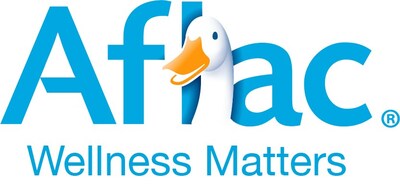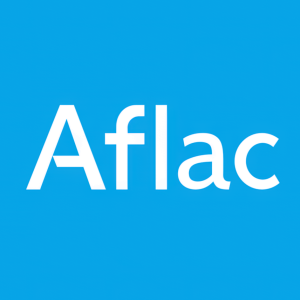9 in 10 Americans have put off health checkups and screenings that could help save their lives
Rhea-AI Summary
Aflac's 2025 Wellness Matters Survey reveals concerning trends in preventive healthcare, with 90% of Americans postponing vital health checkups and screenings. The survey highlights that 94% of Americans face barriers to getting recommended screenings within suggested timeframes.
Key findings show that 48% of Americans face logistical barriers like work conflicts, while 40% have canceled appointments due to long wait times. Generation Z reports high levels of personal embarrassment (32%) and doctor distrust. Common avoided screenings include pap smears (33%), prostate exams (32%), and colonoscopies (32%), with millennials (62%) and Gen Z (61%) being most likely to avoid screenings.
The survey also reveals that 65% of Americans only realize the importance of proactive health care after experiencing a health scare. Notably, nearly 1 in 5 Americans lacks a primary care physician, with 41% primarily using urgent care or emergency rooms for medical needs.
Positive
- Survey data provides valuable insights for Aflac's risk assessment and product development
- Findings can help Aflac target specific demographics with tailored insurance products
- Research positions Aflac as thought leader in healthcare insurance sector
Negative
- 90% of Americans avoiding important health screenings indicates potential future health claims risk
- 94% of Americans face barriers to recommended screenings, suggesting systemic healthcare access issues
- Nearly 20% lacking primary care physician could lead to higher emergency care costs
- High avoidance rates among younger generations (61-62%) suggests growing future health risks
News Market Reaction
On the day this news was published, AFL gained 0.11%, reflecting a mild positive market reaction.
Data tracked by StockTitan Argus on the day of publication.
Aflac Wellness Matters Survey uncovers what may be keeping Americans from getting preventive checkups
Health care on hold
Across all generations, many Americans may put their health care on hold because going to the doctor is not easy — both logistically and emotionally. The survey uncovered an alarming
- Gen Z experiences negative feelings of personal embarrassment and distrust or dislike for doctors (
32% ). - Embarrassment and fear of bad news prevents nearly 1 in 4 young women, particularly Gen Z, from getting screenings on time.
- Nearly half (
48% ) of Americans face logistical barriers such as conflicts with work hours and challenges taking time off work for appointments. - Nearly
40% of Americans have canceled or not scheduled a doctor's appointment because the wait time was too long.
Americans have avoided these common preventive care screenings: pap smear (
Reactive versus proactive health care
The survey reveals possible cognitive dissonance taking place: Americans know they should take a moment to schedule a preventive care screening or wellness visit, but their behavior often suggests otherwise. For
Experiencing a personal health scare reinforced the importance of preventive care for Aflac Senior Vice President and Chief Actuary Tom Morey. In his mid-20s, he faced a significant and sudden health crisis that kept him out of work for nearly two years and in and out of hospitals for 18 months.
"My personal experiences bring a clear focus on the concerning uptick, as our study reveals, in the number of Americans who may not be on a path to good health. Many avoid going to the doctor instead of doing what they can to avoid a health scare or detect a problem early," said Morey. "It starts with making preventive care a priority and taking steps toward establishing a trusted relationship with a primary care doctor. Personally, this helped me to feel more confident, more in control of my health and more empowered to deal with an illness that, otherwise, may have gone undetected."
Where Americans are turning — or not — for health care
Urgent care and emergency rooms provide significant value in American society; however, according to the study, having a primary care physician is correlated with being more likely to get regular checkups. Yet nearly 1 in 5 Americans does not have a regular primary care physician who knows them and understands their medical history. The most common reason for not having a primary care physician is feeling healthy, but that could lead to fewer screenings and more costly health care. Many Americans (
While younger generations still visit their doctors, they are more likely than older generations to consult family and friends — and turn to social media — regarding health concerns. While Americans were still slow to adopt artificial intelligence (AI) over the last 12 months, many Americans (
Gender differences emerging across many aspects of health
Among Americans under age 60, women are most likely to admit to skipping common recommended screenings: Gen Z women (
Survey data reveals a chasm between young men and women's beliefs around their health and their agency to control it. In fact, Gen Z women (
An even wider gap is uncovered in financial health confidence: Gen Z women (
When people are confident that their loved ones prioritize their health, they also are more likely to do so. In fact,
The study also finds that families who prioritize health tend to do so together. Many Americans say their spouses or partners are their biggest health advocates after themselves. Parents advocate for their children, with one-third of African Americans and one-third of
African Americans are more likely than other ethnic groups to be diagnosed during a regularly scheduled screening (
"Having a 'we are in this together' approach to our health may lead to better outcomes for Americans, their families and loved ones," said Morey. "One way to advocate is to schedule preventive care appointments together, at the same time. Our survey shows that Americans who book health appointments at a specific time of year are twice as likely to follow through with recommended checkups and screenings."
Aflac Wellness Matters Survey results are available to American consumers, health care providers, families and health-related stakeholders to educate and inspire a healthier population. To learn more about the 2025 Wellness Matters Survey and find tips on how to take charge of your own health and encourage others to prioritize theirs, visit Aflac.com/WellnessMatters.
ABOUT THE 2025 AFLAC WELLNESS MATTERS SURVEY
This third annual Aflac Wellness Matters Survey, conducted in January 2025, provides insight into the health care attitudes, behaviors and influences of
ABOUT AFLAC INCORPORATED
Aflac Incorporated (NYSE: AFL), a Fortune 500 company, has helped provide financial protection and peace of mind for nearly seven decades to millions of policyholders and customers through its subsidiaries in the
Media contact: Jon Sullivan, 706-763-4813 or jsullivan@aflac.com
Analyst and investor contact: David A. Young, 706-596-3264, 800-235-2667 or dyoung@aflac.com
1 2025 Wellness Matters Survey
2 LIMRA 2024 U.S. Supplemental Health Insurance Total Market Report
Aflac's family of insurers include American Family Life Assurance Company of
Aflac | WWHQ | 1932 Wynnton Road |
![]() View original content to download multimedia:https://www.prnewswire.com/news-releases/9-in-10-americans-have-put-off-health-checkups-and-screenings-that-could-help-save-their-lives-302435207.html
View original content to download multimedia:https://www.prnewswire.com/news-releases/9-in-10-americans-have-put-off-health-checkups-and-screenings-that-could-help-save-their-lives-302435207.html
SOURCE Aflac








